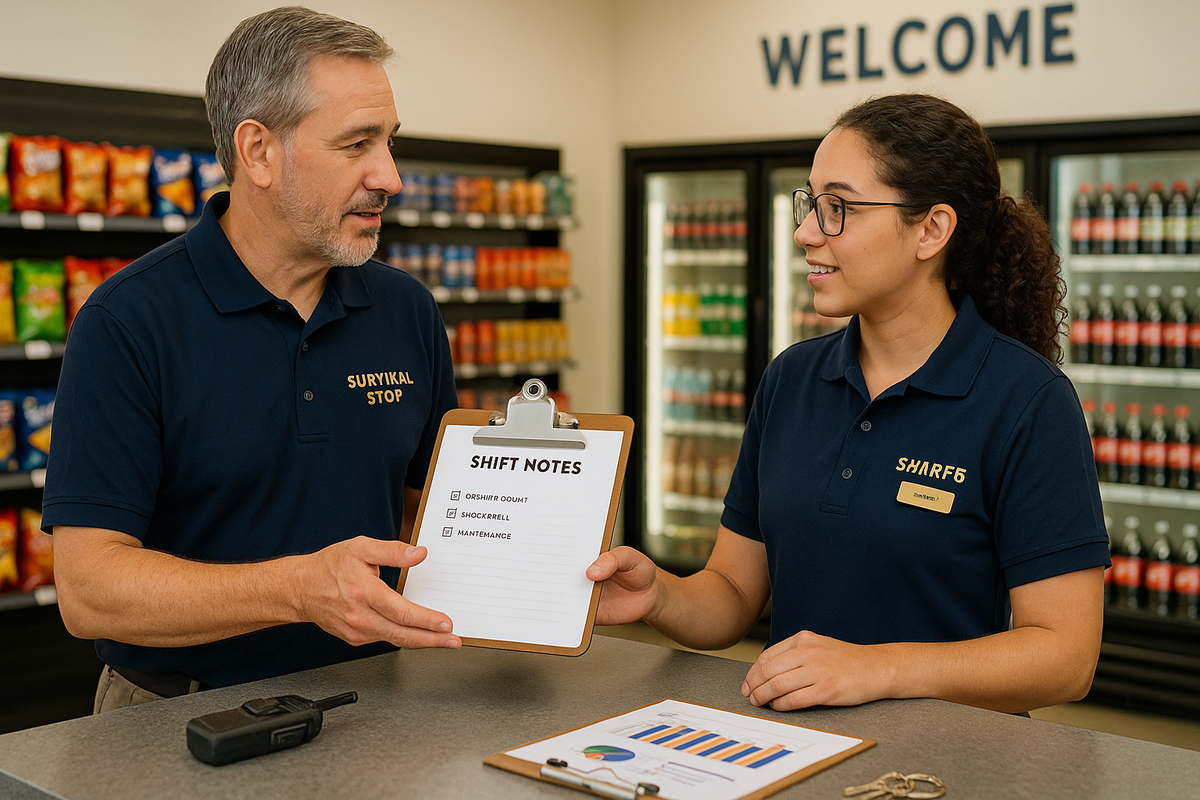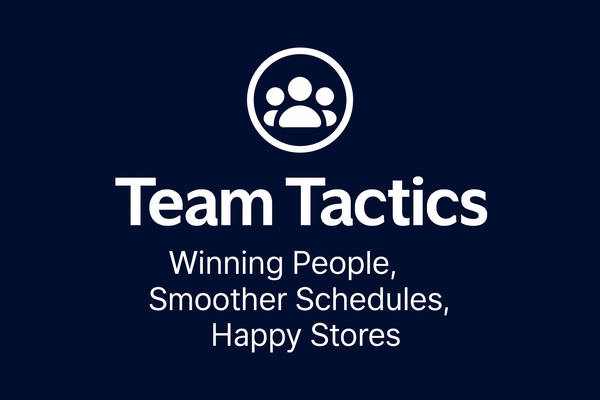How to Communicate Effectively During Shift Change
Master shift change communication to reduce errors by 30%. Clear handoffs prevent problems & build team trust.

Every shift in a convenience store tells a story. If communication is sloppy, the next team inherits confusion, mistakes, and frustrated customers. But if the handoff is clear, the store runs like a well-oiled machine. The difference? Associates who know how to communicate effectively during shift change.
Why It Matters
When you pass on accurate information, you show that you’re not just clocking out—you’re protecting your team and your store’s reputation. Customers see a smooth handoff as professionalism. Managers see it as reliability. And your teammates? They see you as someone who has their back.
Taking Control of the Handoff
You have the power to prevent problems before they start. A few extra minutes to brief the next associate can save them from walking into chaos. Think about it: one clear note about a broken pump, a shorted Lotto machine, or a near-empty coffee pot keeps small issues from becoming big complaints. By owning the handoff, you control whether your shift ends strong or leaves a mess.
Proof It Works
It’s not just good manners—it’s measurable. Stores that use structured shift handovers reduce operational errors by 30%. Managers report fewer customer complaints, faster resolution of issues, and smoother overall store performance when handoffs are consistent. Communication at changeover directly impacts efficiency and sales.
Frequently Occurring Thoughts at Shift Change
These are the moments associates experience every day:
- “Please tell me they refilled the coffee this time.”
- “I don’t want to leave a mess for the night crew—I hate when it happens to me.”
- “Why didn’t anyone mention the cooler light was out?”
- “If I write notes, will the next person even read them?”
- “Yes! Everything’s in order. The next shift will walk in stress-free.”
These thoughts are universal, and they prove one thing: shift change communication isn’t optional—it’s part of the job.
The Bottom Line
Communicating effectively during shift change is how you turn small daily handoffs into a system of trust. When you pass along clear updates, accurate notes, and pending tasks, you show professionalism and earn respect. Great associates don’t just clock out—they make sure the next shift is set up for success.





